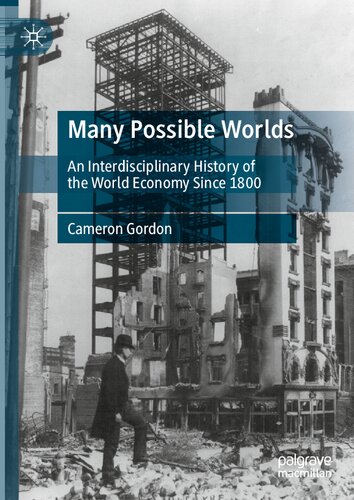

Most ebook files are in PDF format, so you can easily read them using various software such as Foxit Reader or directly on the Google Chrome browser.
Some ebook files are released by publishers in other formats such as .awz, .mobi, .epub, .fb2, etc. You may need to install specific software to read these formats on mobile/PC, such as Calibre.
Please read the tutorial at this link: https://ebookbell.com/faq
We offer FREE conversion to the popular formats you request; however, this may take some time. Therefore, right after payment, please email us, and we will try to provide the service as quickly as possible.
For some exceptional file formats or broken links (if any), please refrain from opening any disputes. Instead, email us first, and we will try to assist within a maximum of 6 hours.
EbookBell Team

0.0
0 reviewsThis book provides a crosscutting interdisciplinary account of how the disintegrated, global subsistence economy circa 1800 has transformed into a global complex delivering unprecedented levels of material production and consumption. Applying major findings from economics, history/historiography, and sociology (as well as from anthropology, psychology, politics, and environmental studies), the analysis tracks the ways in which changes in ‘society’ (including social structures, values, and forces) have changed ‘individuals’ (including conceptions of race, gender, and identity) and vice versa. These changes have simultaneously homogenised and diversified societies and individuals in distinct but sometimes contradictory ways, opening up many possible worlds from an individual and group perspective. Yet, the scale and pace of change has also led to increasing existential challenges.
The narrative consists of 30 chapters organized into 10 subsets of 3: one chapter on a relevant core idea; one chapter focused on historical narrative and titled after a representative year; and one chapter on a relevant associated crosscutting theme. Major regional and topical discussions are provided, with special attention paid to business and organisational change and developing world scholarship. Small discussion ‘boxes’ focusing on illustrative cases and details are presented throughout the book. The last chapter contains over-arching conclusions.